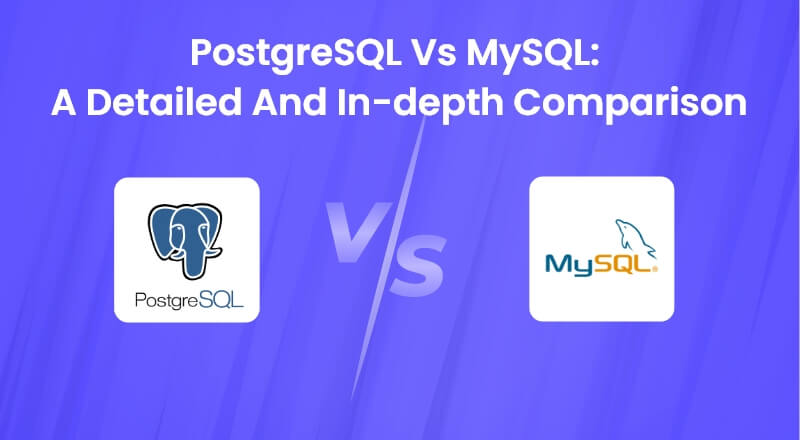

Programming languages for stored procedures Yes (Supported since MySQL 8.0.16, Before that MySQL just ignored the CHECK constraint) Must be a constant or CURRENT_TIMESTAMP for TIMESTAMP or DATETIME columns Support many advanced types such as array, hstore, and user-defined type. once data is deleted, it cannot be rolled back. MySQL TRUNCATE TABLE does not support CASCADE and transaction safe i.e. PostgreSQL TRUNCATE TABLE supports more features like CASCADE, RESTART IDENTITY, CONTINUE IDENTITY, transaction-safe, etc. Support CASCADE option to drop table’s dependent objects e.g., tables and views. Support the TEMP or TEMPORARY keyword in the DROP TABLE statement that allows you to remove the temporary table only. No TEMP or TEMPORARY keyword in DROP TABLE statement Multiple storage engines e.g., InnoDB and MyISAM The world’s most popular open source database. The world’s most advanced open source database. The following table compares the features of PostgreSQL vs. MySQL has been famous for its ease of use and speed, while PostgreSQL has many more advanced features, which is the reason that PostgreSQL is often described as an open-source version of Oracle. Both PostgreSQL and MySQL are time-proven solutions that can compete with enterprise solutions such as Oracle and SQL Server. MySQL is an important decision when it comes to choosing an open-source relational database management system. And that's one of the things that frustrates me, actually, about blogging or just the Internet in general.PostgreSQL vs. MySQL is the only database I've ever programmed against in my career that has had data integrity problems, where you do queries and you get nonsense answers back, that are incorrect. Joel also said in that podcast that comment would come back to bite him because people would be saying that MySQL was a piece of crap - Joel couldn't get a count of rows back. Which it probably doesn't, so just pick whichever database you like the sound of and go with it better performance can be bought with more RAM and CPU, and more appropriate database design, and clever stored procedure tricks and so on - and all of that is cheaper and easier for random-website-X than agonizing over which to pick, MySQL or PostgreSQL, and specialist tuning from expensive DBAs. It's astonishing how expensive good DBAs are and they are worth every cent. If it really matters, test your application against both." And if you really, really care, you get in two DBAs (one who specializes in each database) and get them to tune the crap out of the databases, and then choose. So if your decision factor is, " which is faster?" Then the answer is "it depends. It goes on to link to a number of performance comparisons, because these things are very. PostgreSQL is relatively slow at low concurrency levels, but scales well with increasing load levels, while providing enough isolation between concurrent accesses to avoid slowdowns at high write/read ratios. On the other hand, it exhibits low scalability with increasing loads and write/read ratios. There's this discussion addressing your "better" questionĪpparently, according to this web page, MySQL is fast when concurrent access levels are low, and when there are many more reads than writes. PostgreSQL is a much more mature product.

MySQL is much more commonly provided by web hosts.
Postgres vs mysql differences software#
Software can change rapidly from version to version, so before you go choosing a DBMS based on the advice below, do some research to see if it's still accurate. That's nearly 11 years ago as of this edit. A note to future readers: The text below was last edited in August 2008.


 0 kommentar(er)
0 kommentar(er)
